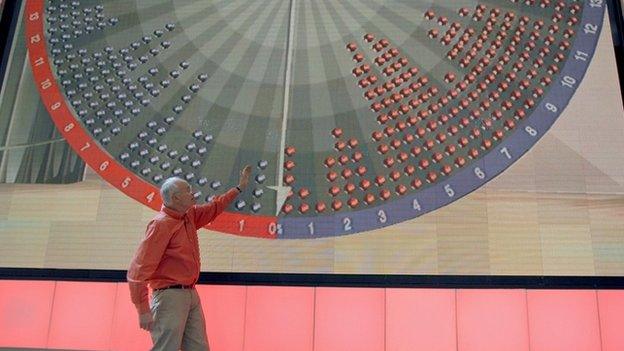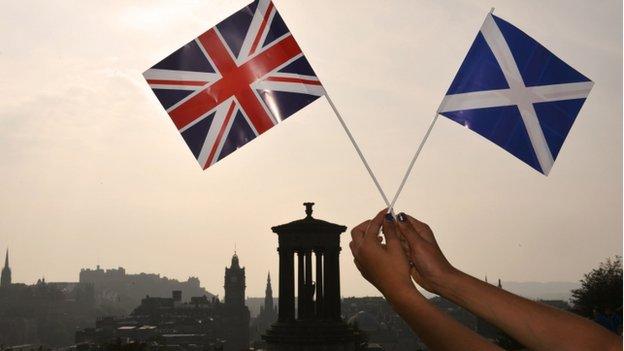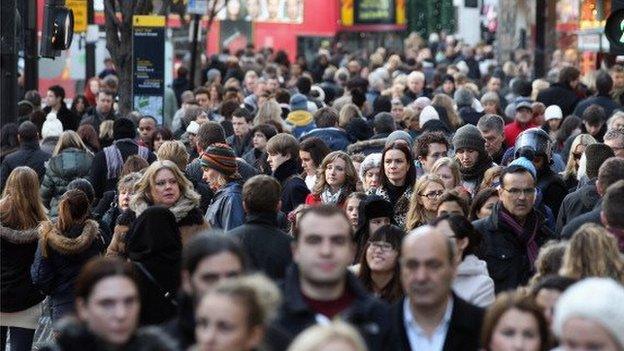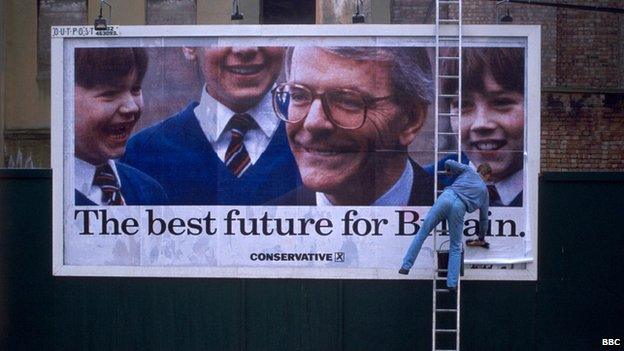Election 2015: The challenge for pollsters
- Published

Results in individual constituencies may buck any national swing in opinion
We will be spoilt for choice in terms of opinion polls during the 2015 general election. In 1964, 23 opinion polls were published during the general election campaign; by my records, some 75 were published during the 2010 campaign.
However, the challenges for the pollsters have never been greater as they attempt to interpret a political landscape that has changed significantly since 2010.
At the last general election, 12% of voters did not support Conservative, Labour or Lib Dem candidates: on average, in the polls during March this year, the number of respondents saying they intended to vote for other parties was 26%.
There will also be a lot more polling in Scotland this time, given the political earthquake predicted by polls conducted there since last September's independence referendum. Labour must hope that these polls are as inaccurate as they were in the referendum.
Key issues
Another distinctive feature of 2015 is the profusion of polls sampled in individual parliamentary constituencies. Well over 100 have been published so far and more are promised during the actual election campaign.
These polls give us a wealth of detail about what appears to be happening in key marginal seats that national opinion polls cannot provide.
They give insights into questions about how Labour is performing in marginal seats compared to the national polls; how deep is the SNP advance into many Scottish seats; where UKIP is performing most strongly, and what success are the Lib Dems having in retaining seats that their national poll ratings would suggest are in jeopardy.

Will predictions of a political earthquake in Scotland prove correct?
Much polling throughout the campaign will ask people what issues are important to them. Polling suggests that we go into the 2015 campaign with the NHS, immigration and the economy in lead positions in terms of public concern.
But a distinctive feature of numerous pre-election polls has been that many people do not feel any of the main Westminster parties are able to deal with such issues. All of which will make judgements about which party benefits electorally from particular issues more difficult to decide.

GENERAL ELECTION 2015

In four of the last five general elections the final campaign polls overstated Labour's share of the vote. This inevitably raises the important question of whether the polls will do so again in 2015. I would feel more confident about the answer but for the fact that, in the 2010 election the majority of polls understated Labour's position.
Indeed, some 56 of the 75 polls understated Labour's final vote share (five of them by as much as 6-7%). The final polls before election day in 2010 understated Labour by around 2% and overstated the Lib Dems by between 2-4%.
Calling it right
We may well look back on 2015 as the margin of error election.
If the polls during the election campaign have the Conservatives and Labour as close to each other as those in the months before, then most of their vote share figures will be within the plus or minus 3% range of accuracy. Yet another complication for all of us looking for answers to the possible outcome of this election.
The nightmare for any pollster is to call an election for the wrong party; and, aside from 1992, the pollsters have successfully reflected the winner. However, 2015 could be rather more challenging.

The percentage of people who do not identify with one of the main parties seems to be growing
Pollsters quite properly remind us that they do not predict how many seats each party will receive: how votes translate into parliamentary seats is the product of our non-proportional, first-past-the-post electoral system, working out in 650 individual seats.
However, we do expect their final campaign polls to give us an accurate picture of the percentage share of the national vote that each of the largest parties will receive.
With such uncertainty about the outcome of the forthcoming general election, the spotlight is likely to focus ever more intensely on opinion polls during the campaign. We will certainly have enough of them to satisfy the largest of appetites.
But let us acknowledge that this election is likely to be one of the most challenging for pollsters since the industry began here in 1938.
- Published18 February 2015
